Umm Al-Qura University
- College of Computing
The idea of the voluntary initiative of 'Communities Like You' came from its founder Ms. Balsam Zakaria Khojah, a lecturer in the College of Computer and Information Systems, after noticing the individual love and attention given by the female students to the cats inside the university campus. The members of the initiative came together for only one reason: the true humanity which believes in kindness to animals as being an innate and religious principle. Thanks to the Vice Dean of the College of Computer and Information Systems, Dr. Sarah Al-Shareef, who saved no effort to make the initiative see the light of day on the grounds of the university campus, the initiative was launched and was given the name of "Communities Like You" as a slogan for the team. The slogan was taken from the following noble verse: "There is not a moving (living) creature on earth, nor a bird that flies with its two wings, but are Umam Amthalukum [communities like you] …", (Surat Al-An`am: 38), and the joint work started to provide a safe environment and a good life for the cats of the university campus. With the participation of more than 50 female students from all UQU departments, the numbers of cats were counted in order to provide them with their basic needs, including: food, medicine, and housing. The students also started to spread the culture of caring for cats through their social media accounts to increase awareness of these struggling creatures. The team also wishes to implement the TNVR concept, to make UQU an example of a healthy environment.
We look forward to providing a safe environment for creatures living among us, such as the cats in our universities, and to spreading the culture of kindness to animals which is urged by our religion and human nature.
Feeding Team:
The feeding team provides food for the cats using specific tubes which are installed in various places inside the university campus. These tubes are refilled with food on a daily basis or when needed. This is in addition to the direct distribution of fresh food on dishes.
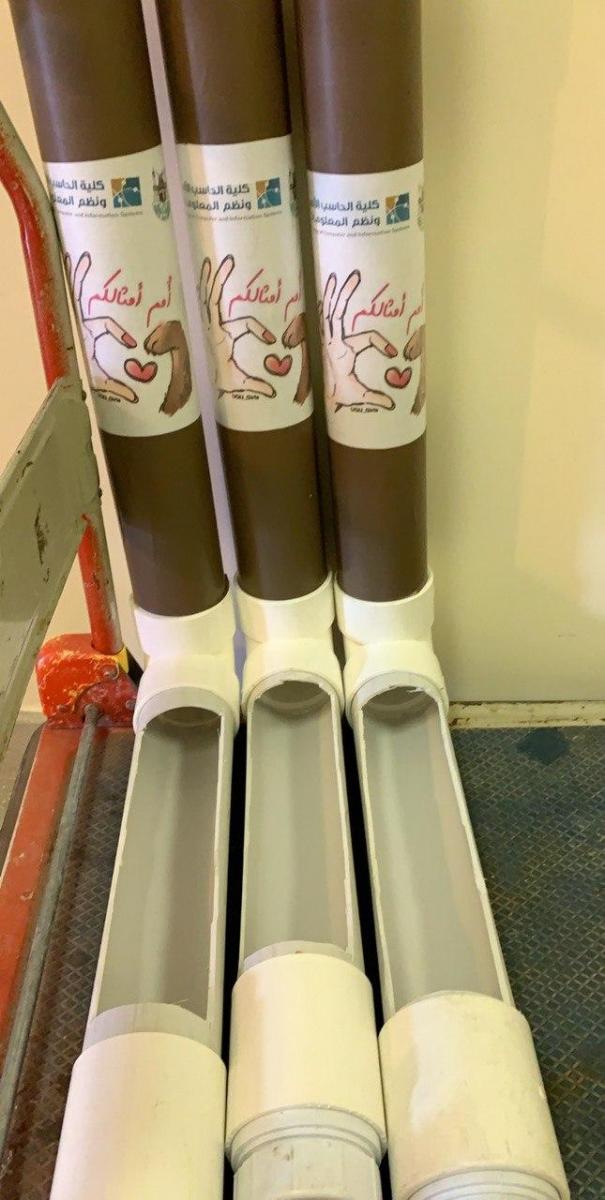
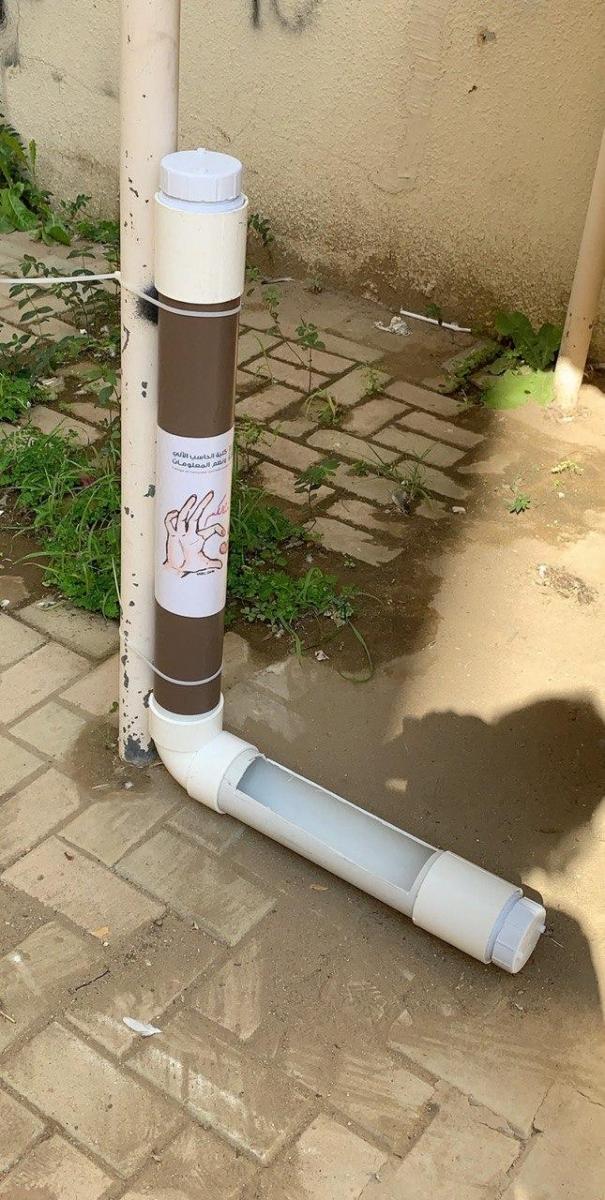
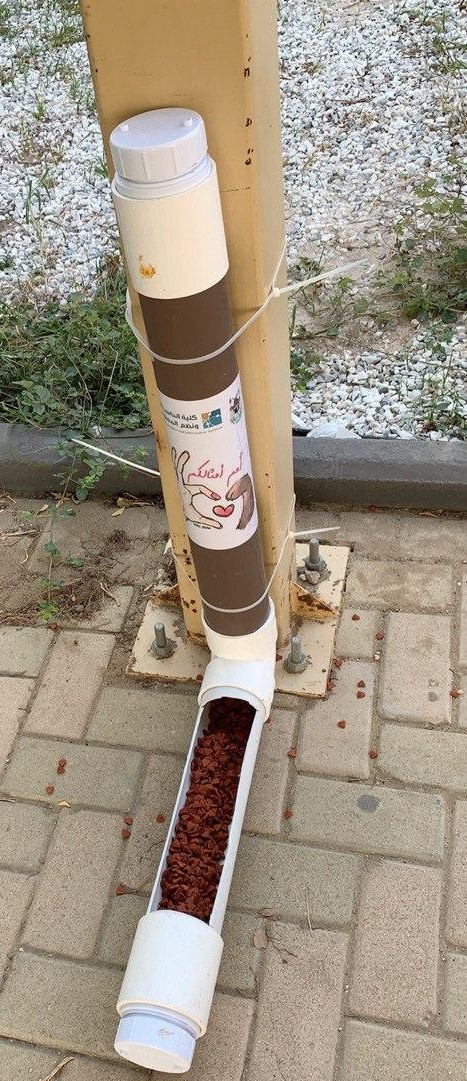
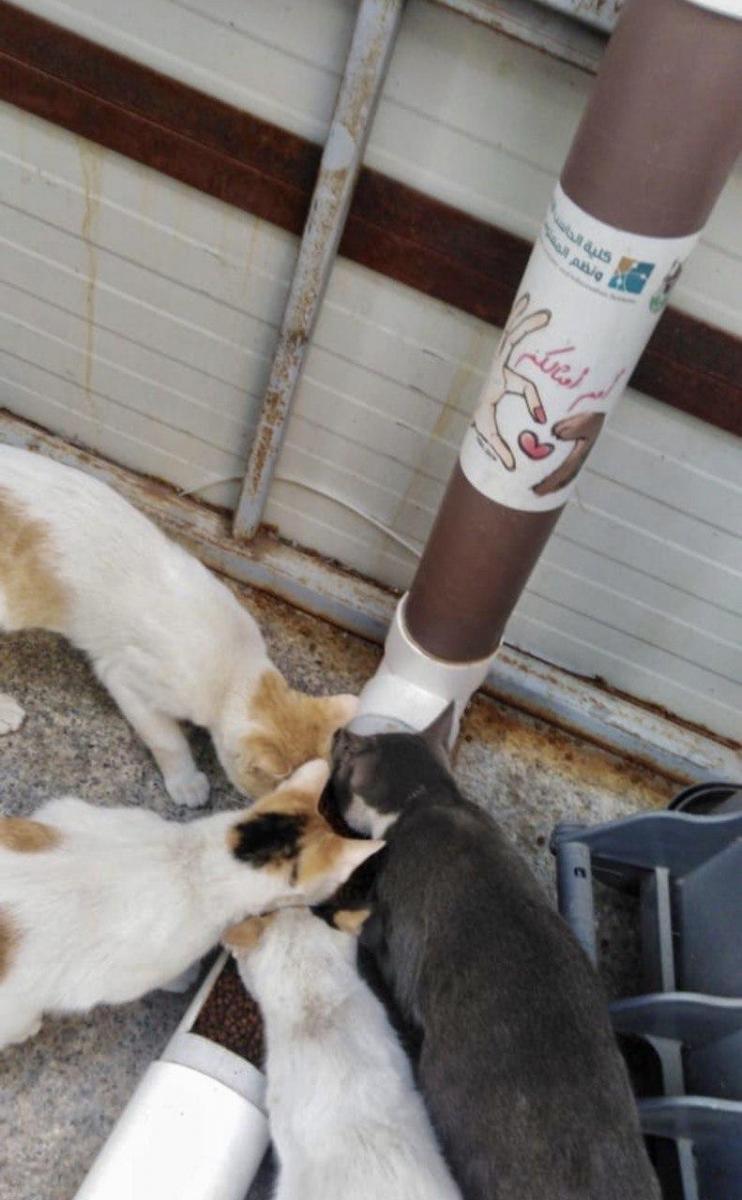
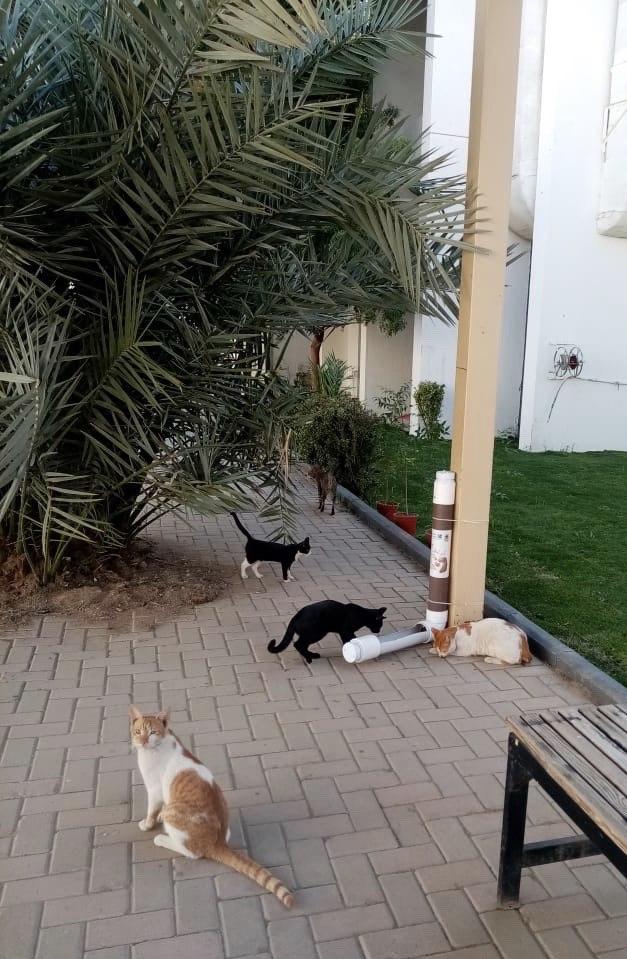
Providing food for the cats using specific tubes
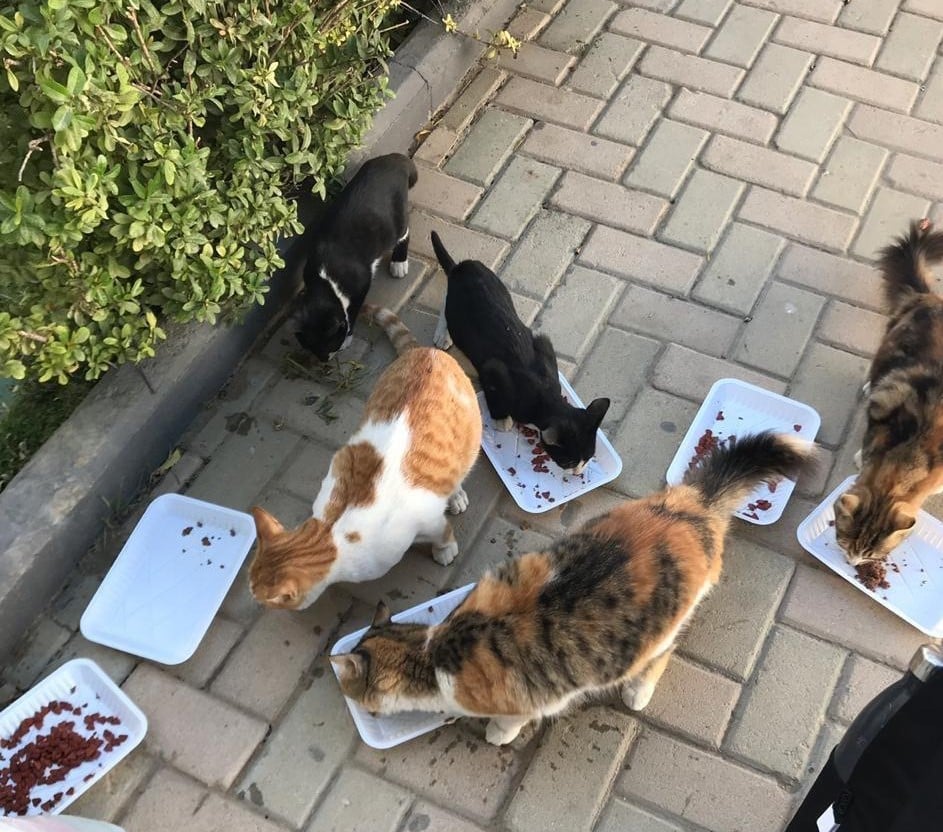
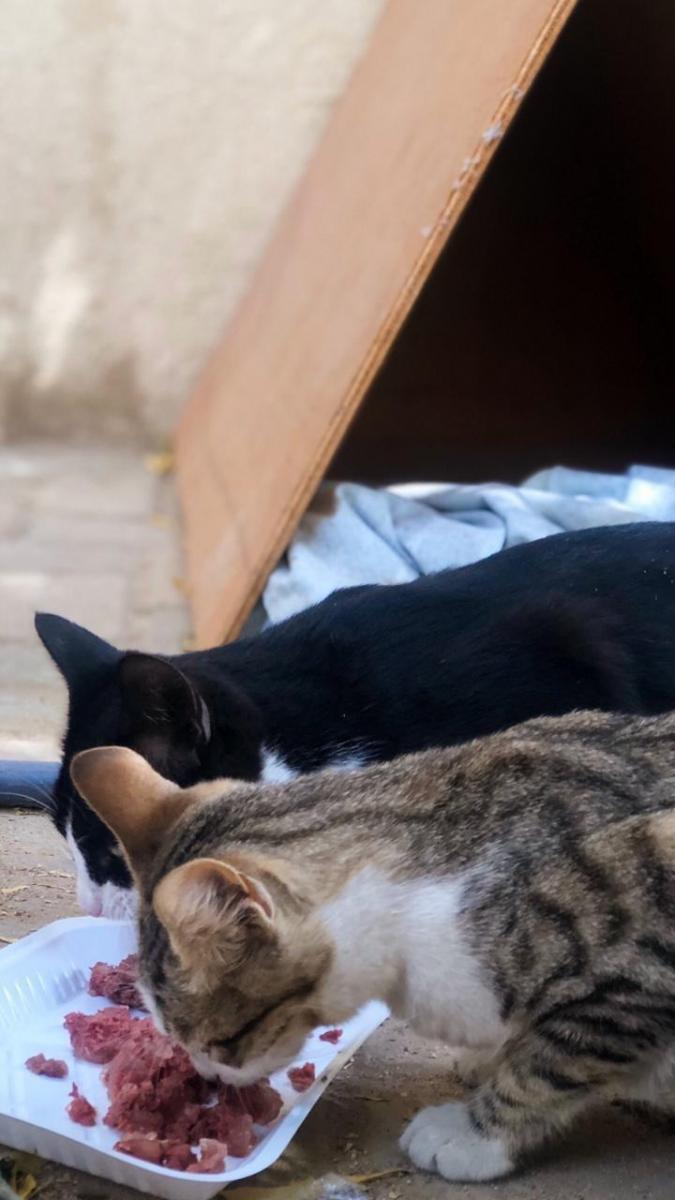
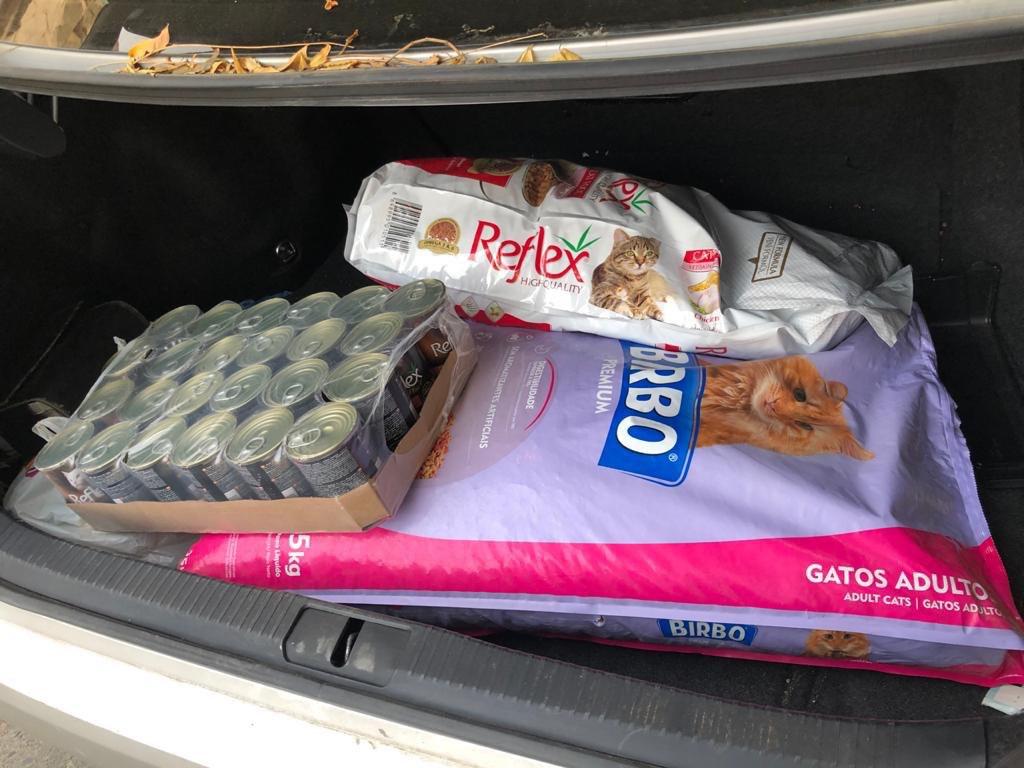
Constant provision of dry and fresh food
Medical Team:
Some cases require temporary adoption of the cats outside the university during the treatment period. Other cases can be treated inside the university relying on the first aid provided by some female students who are experienced in veterinary treatment. Below are some photos of cats that were rescued inside the university:
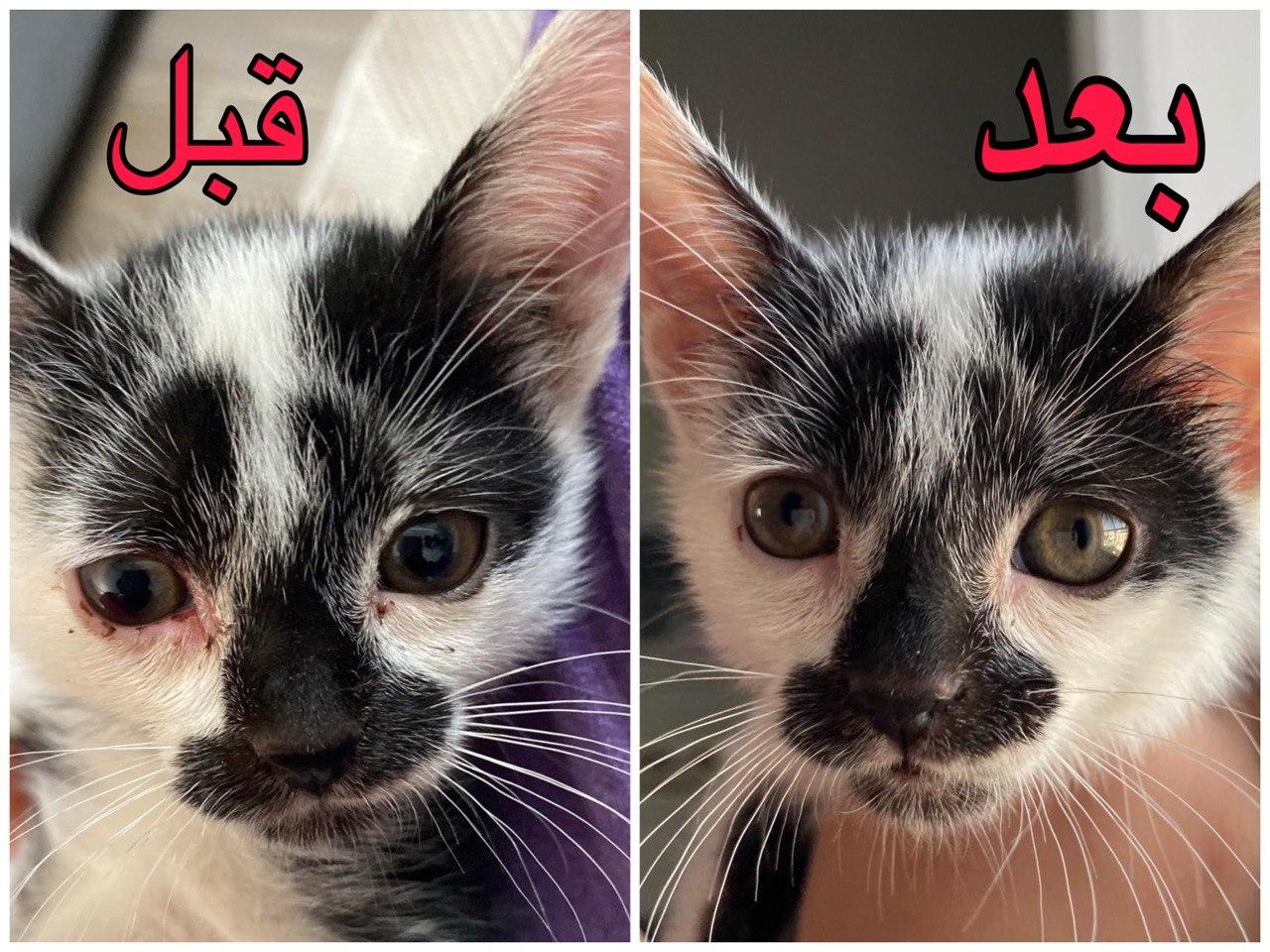
A little cat was rescued after falling downstairs. It was adopted outside the university.
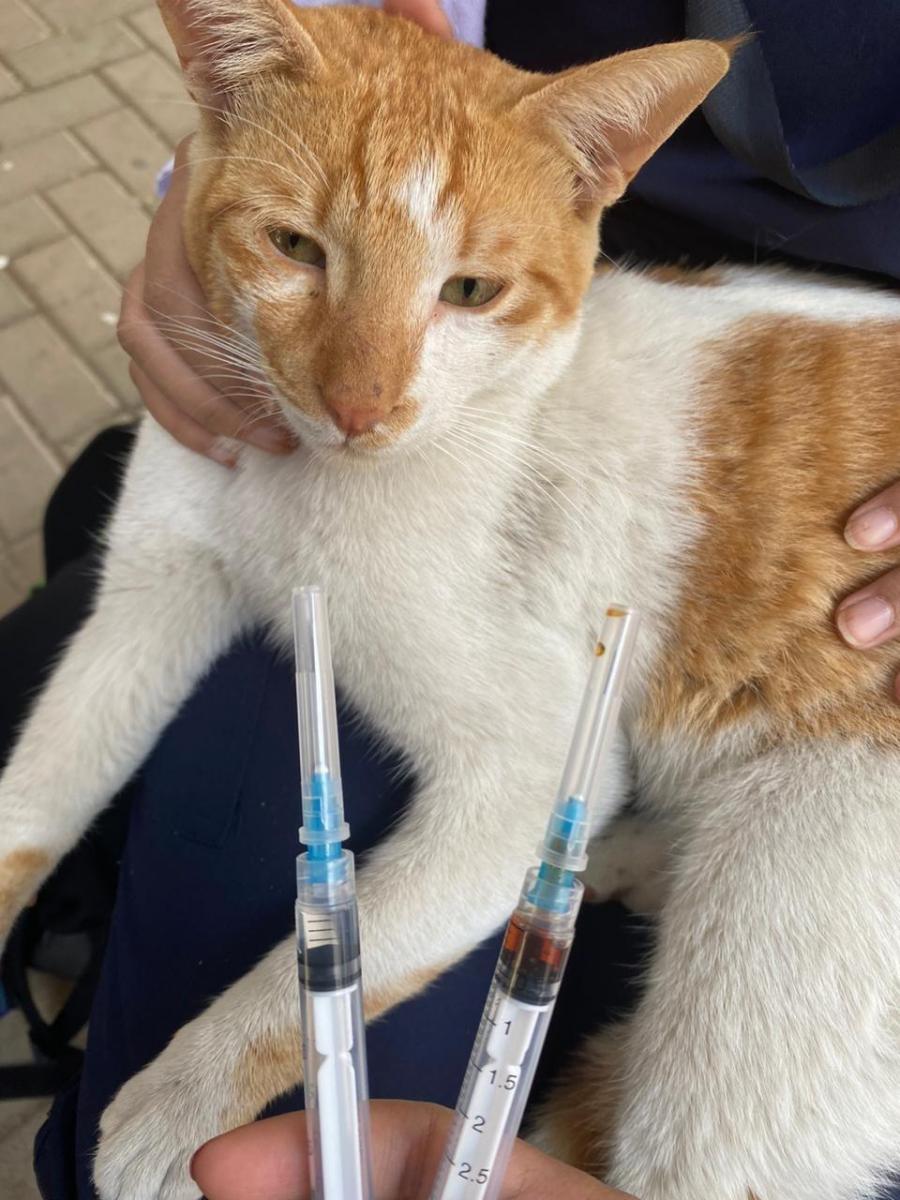
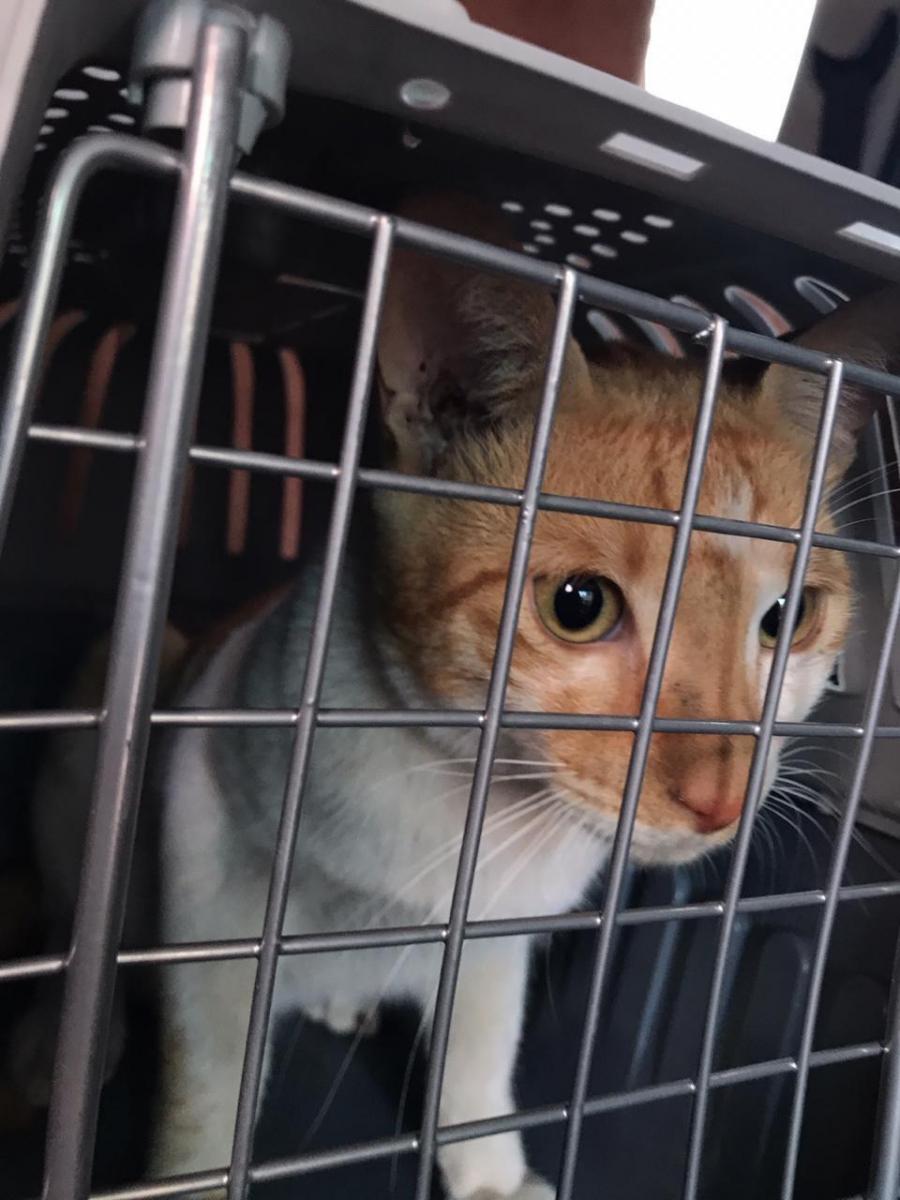
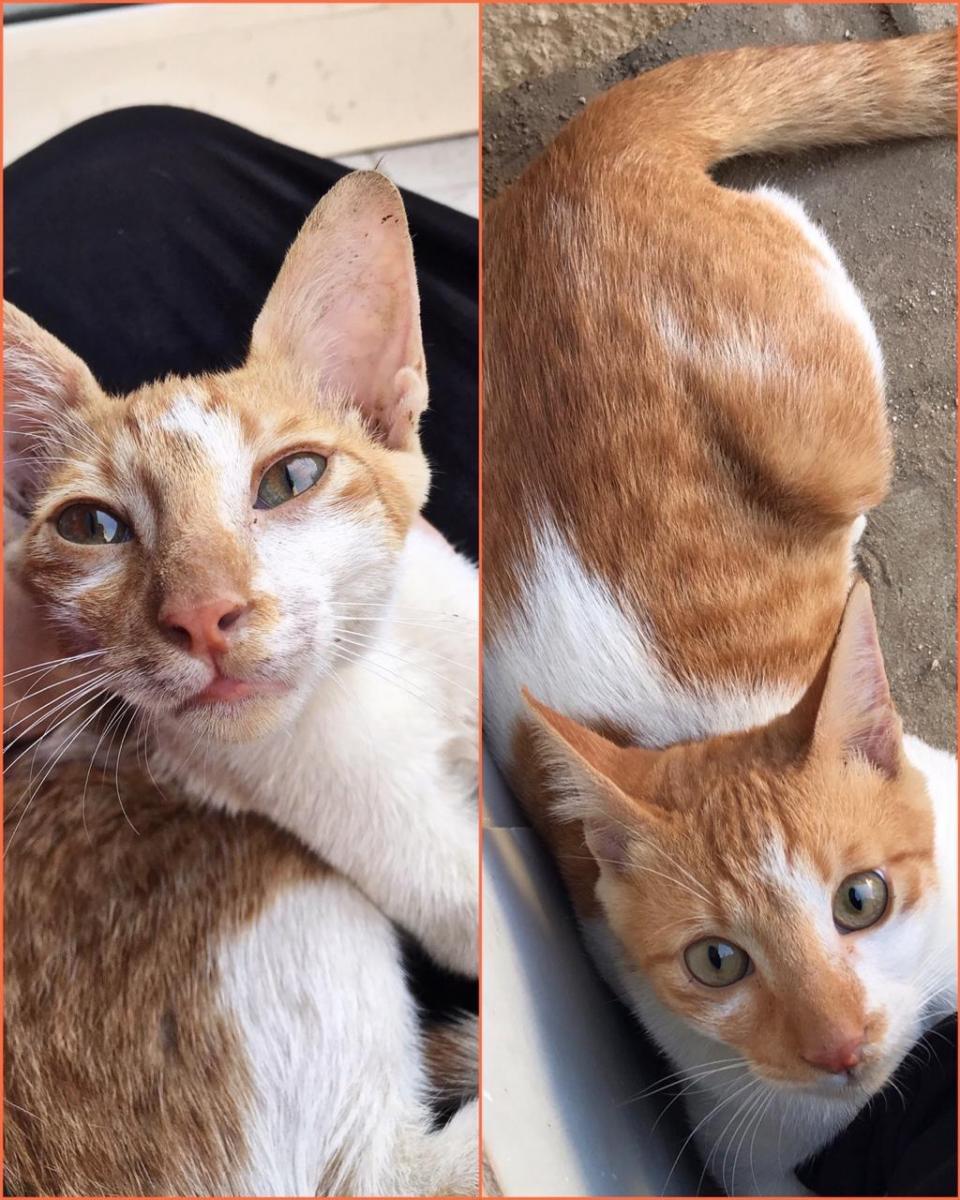
The cat suffered a bite on the right foot, causing inflammation and pain. It was treated and then returned back to the university.
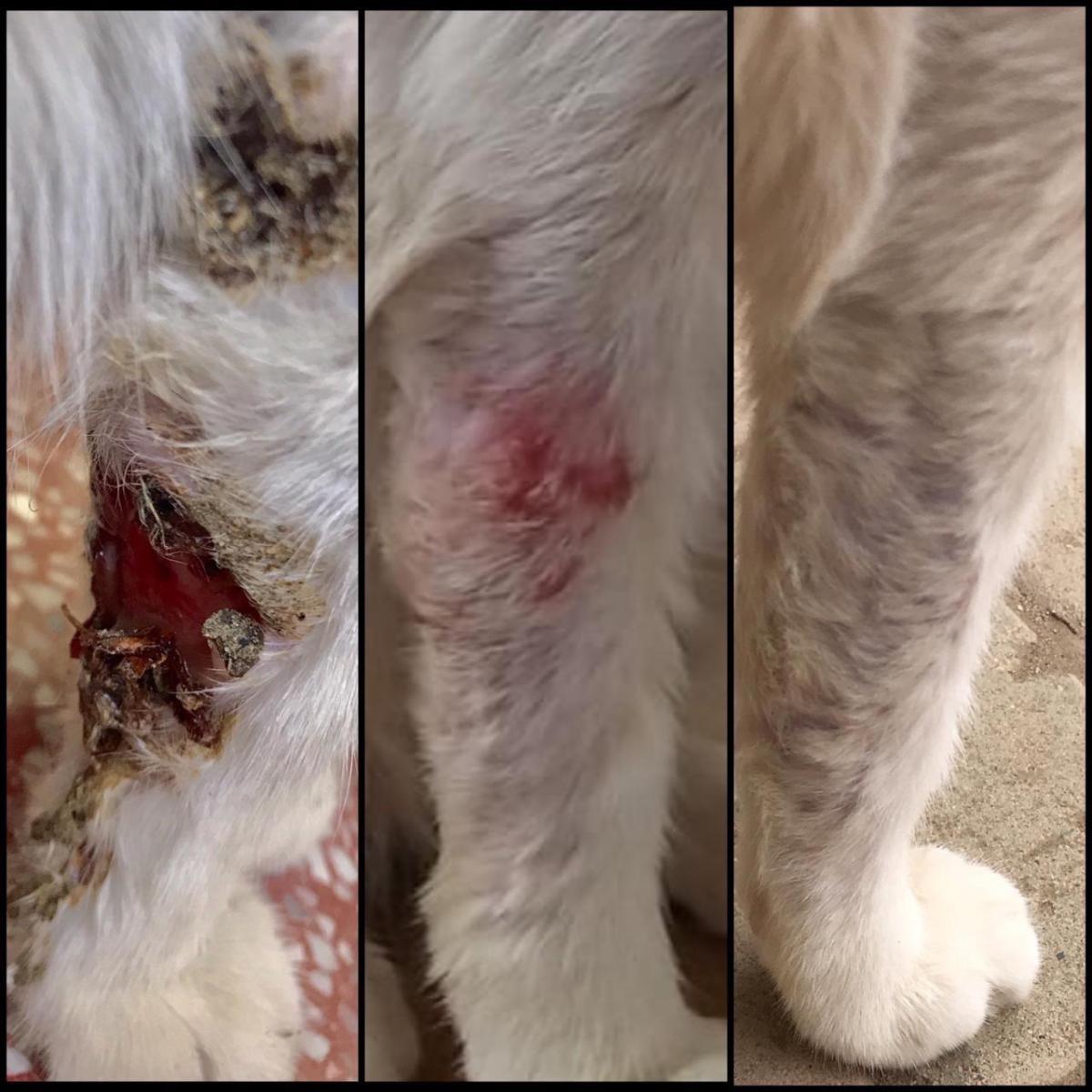
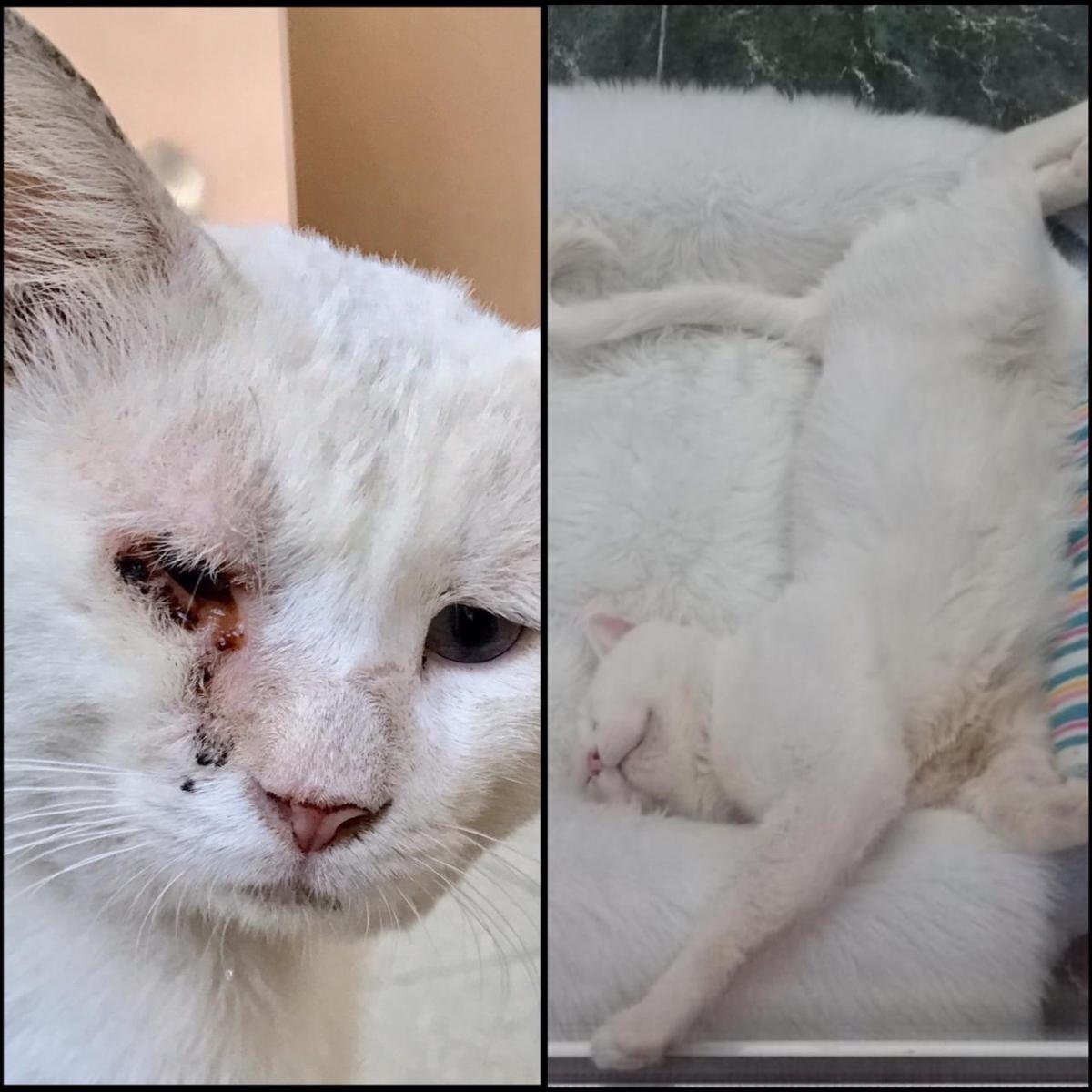
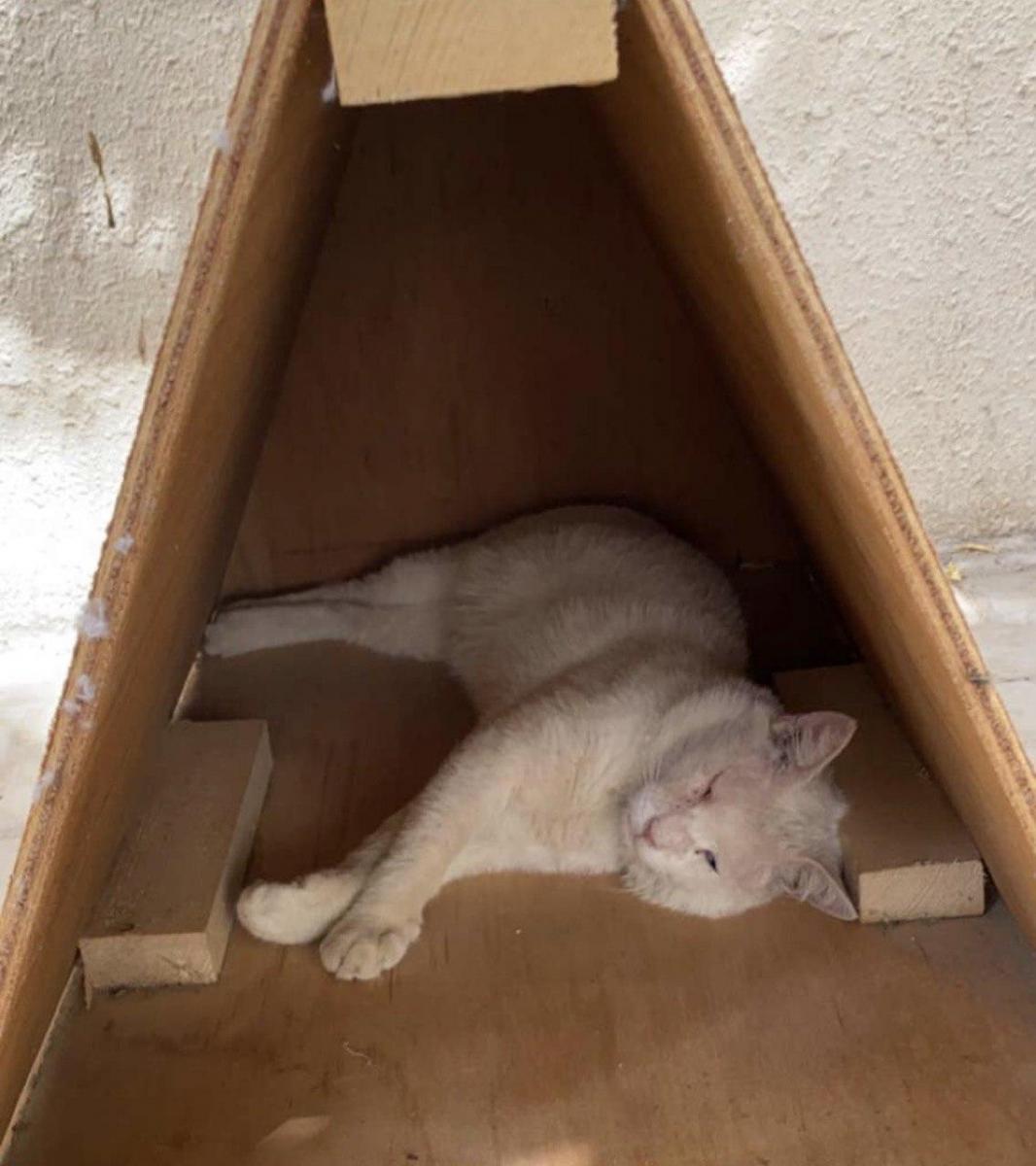
Max, the cat, was treated and temporarily adopted during the treatment period. Its condition is currently stable, inside the university.
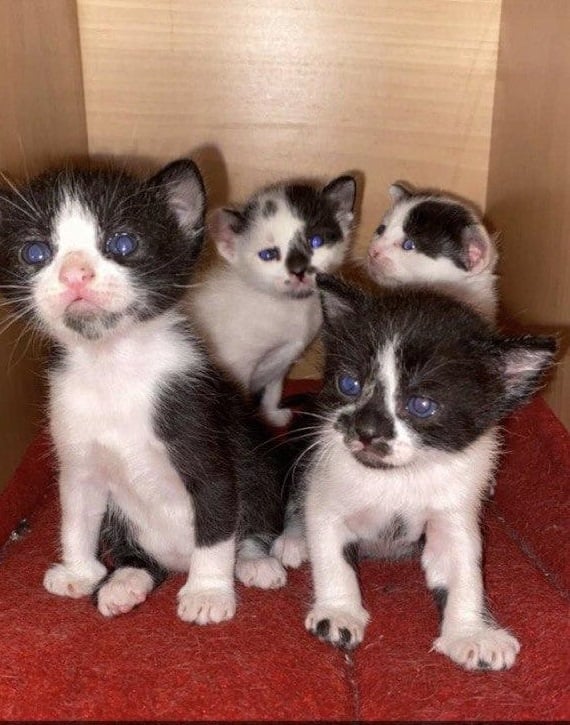
Kittens were rescued and given the needed care during the study suspension period.
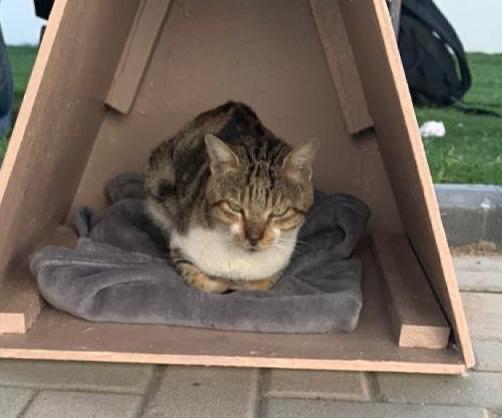
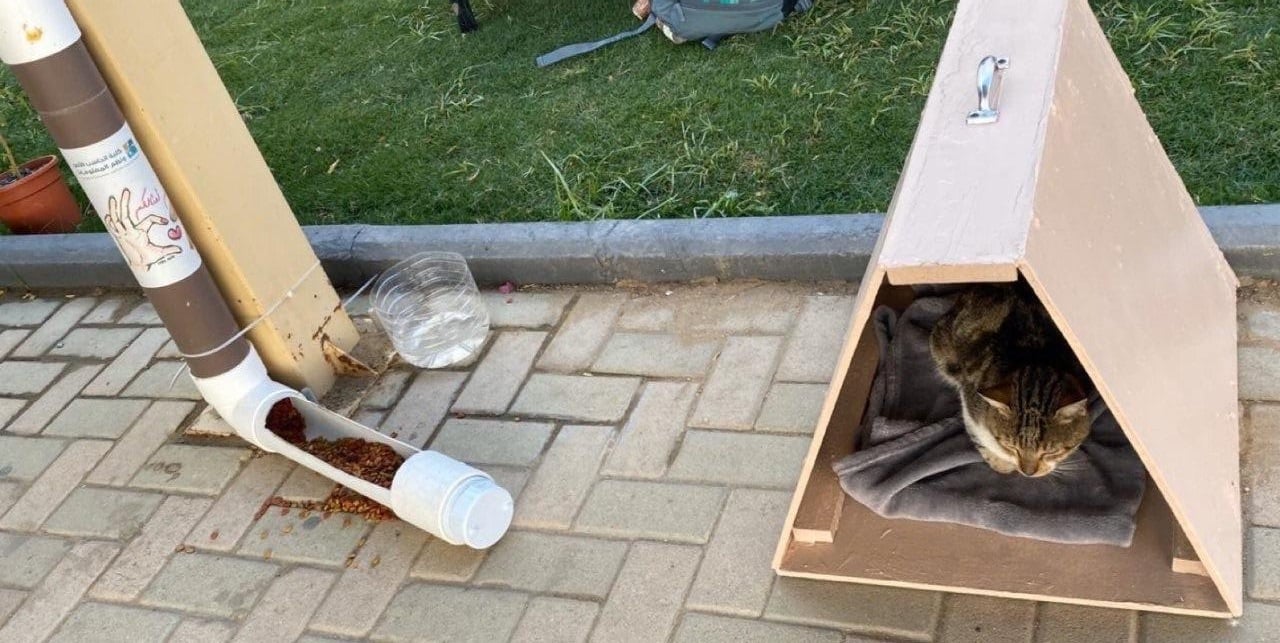
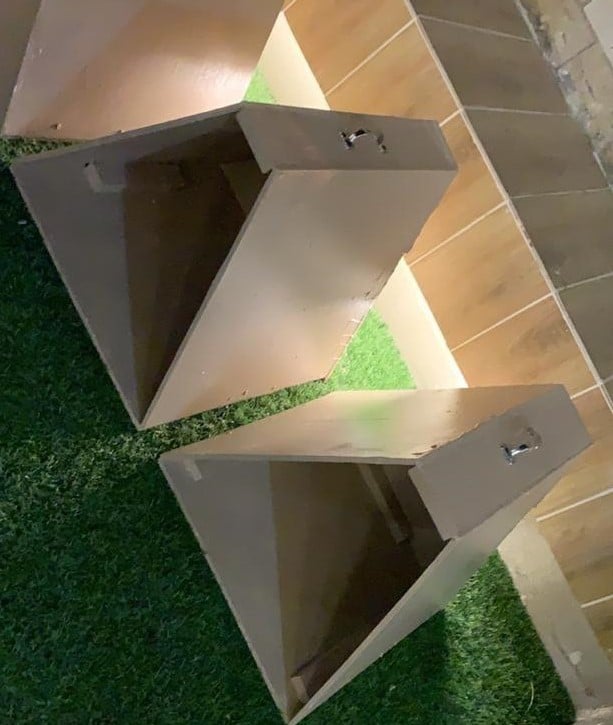
The members of the team provided a number of wooden houses to protect the cats from the different climate conditions.
Media Team:
The female team members persevere in spreading the culture of being kind to animals, encouraging adoption, and rejecting animal trading. They also post awareness articles and topics on medical and animal husbandry in general on various social media. To follow the 'Communities Like You' account, click here:
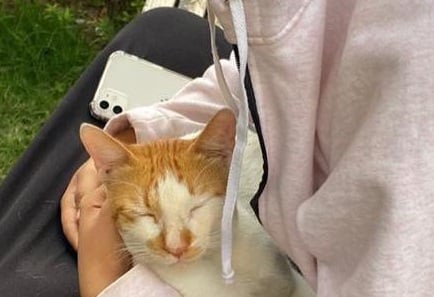
Our female members in the university show love and care to cats. Every cat has its special name. This is only to reflect some of the significant efforts and constant persistence exerted voluntarily for the sake of these cute and weak animals. The voluntary work of some members of our team extends outside the walls of the university.
The contribution of the initiative extends outside the university with the interaction and cooperation of some male and female youth from Makkah and Jeddah. This group has rescued, treated, adopted and searched for permanent safe houses for the cats. Some of them provided food as much as possible, and their work is documented on the social media networks.
To follow up all our work, a website was created in this regard to record the efforts of the initiative volunteers by documenting their volunteering work in one place. To visit the website of 'Communities Like You', click here